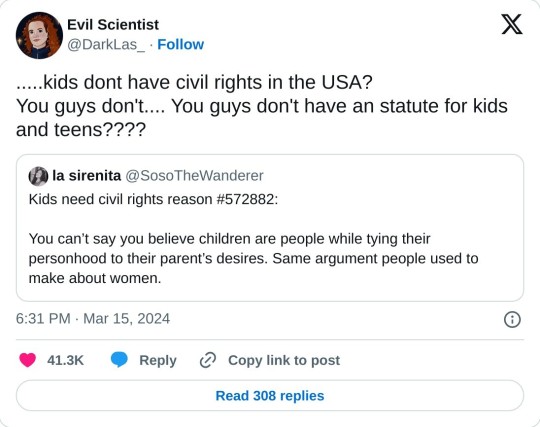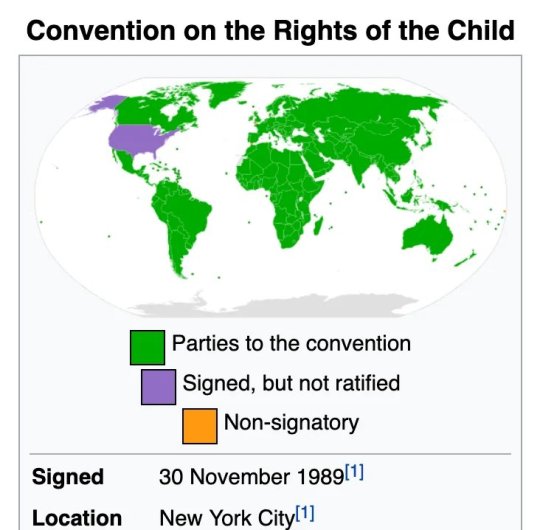Text
I’m so emotional about dinosaur stuffed animals,,, there are these creatures, extinct long before any of us were alive, but we found their bones and their eggs and their footprints. And we made drawings and models of what they could’ve looked like. And we made them into stuffed animals so we could hold them. We made them soft so we could love them. I’m sobbing
93K notes
·
View notes
Text
I have heard that a few people are actually worried that they won't understand Macbeth when they go to see it in the Autumn/fall.

Can I make a suggestion to you all.That you read the play while listening to this BBC Radio 4 play version that David Tennant performed.... it will make you familiar with the story and what is actually going on.
youtube
I have always loved Shakespeare, but as a Dyslexic I struggle too... so I do my home work. I do it so that I can actually enjoy the live performances without much confusion.

Macbeth production photos from the Donmar Warehouse.


I am really looking forward to it.

I hope the recording helps.... or you will be pulling faces like Crowley... as it's one of the Gloomy ones..lol.




Here are some links to help understand the prose.
With modern translations.
#so looking forward to seeing this in October#might look into the resources here they look good#studied Macbeth at school but everytime i think I've remembered a line from it#it's Hamlet#😆#actually might reread Wyrd Sisters too
68 notes
·
View notes
Text
i know it's been said a million times but i still find it so fucking funny that shax told aziraphale that he isn't crowley's type. girl crowley's type is "aziraphale." not even nerds or bookshop owners or angels, it is ONLY aziraphale.
and that makes aziraphale's reaction so much funnier because he KNOWS she's bluffing. it's SO obvious. like he's oblivious, but he's not THAT oblivious. he's literally like the only person crowley has ever willingly hung out with. like nice try but that's the worst bluff ever, i thought you were supposed to be good at this.
949 notes
·
View notes
Text

Crowley just wants a perfect garden, lush and glorious, a slice of Eden in the South Downs - as fast as possible. If only the damn plants would bend to his will.
Fortunately, Aziraphale is more than willing to teach Crowley patience and show him that good things take time to grow - in more ways than one.
Together they experience new joys in caring for each other's needs.
roots to grow and wings to fly (E, 1/2, 6.9 k)
Slowly, using only the tip of his index finger, he tried to lift the seedling back up.
It flopped to the other side.
Crowley let himself fall backwards into the mud. He lay there, arms outstretched, snarling at the holes of his other fruitless gardening attempts and staring into the gentle but relentless rain that pelted down on him, his hair splayed around him like a broken halo.
He couldn't take it anymore.
A demon only had so much endurance.
A week ago, he had thrown himself wholeheartedly into what he had called Project Garden (with capital letters indeed), spending hours and hours outdoors, even adapting to the dirt, the wet and the cold, driven by enthusiasm and a vision.
The problem was, just because Crowley liked the idea of gardening didn't mean he was any good at it.
(Continue on ao3)
23 notes
·
View notes
Text

Ceremony - rated M, ~ 725 words
Inspired by a bit of art by @mielpetite on their patre0n, which I'll link if it's generally released!
Read on AO3, if you prefer
“Do hold still, dear. One doesn’t want to stain the tablecloth.”
“You want me to. Ng. Hold still, stop… doing that.”
“Nantaimori is a celebration of both victory – which I think I can fairly say we have earned – and of beauty – of artfully prepared food, and of the human body. I am admiring the one before enjoying the other.”
“ ‘M’not – ah – human.” Crowley’s breath trembled with the control required to avoid disturbing the collation displayed on his torso. A morsel of salmon nigiri below the arc of each collarbone, the glistening deep coral of the fish echoing the touch of light on the springy thatch that spread across his chest; a single pressed mackerel oshizushi at his breastbone, the black-over-white of the nori-wrapped rice block like a bit of formal dress; colourful temari balls, topped with miniature collages of seaweed and egg and radish and arranged just below the dark knots of his nipples. A row of hosomaki, like Brighton Rock made of nori and rice, perched in file above the sharp projection of each hipbone, their centres little jewels of cucumber and tuna and plum.
Aziraphale’s hand rested on his thigh, fingertips a ghosting touch at the hollow of his groin.
‘You are wearing a human corporation, dear. Which I for one find particularly… edifying. Oh, my, who would have thought this would… affect you so."
“Edify you.”
“In good time, I’m sure. That’s it, just breathe yourself down. I think… hm, yes, an orderly progression is the best. It’s customary to use chopsticks for this presentation – the inlaid ones, I think – “ Crowley suppressed a startled twitch as the points of lacquered wood ohashi traced a twin path below his right collarbone. The slight weight of the nigiri lifted from his skin, leaving a faint moist spot that for moment nearly overwhelmed his senses, nerve endings rioting in his enforced repose.
“Ambrosial. Just the touch of a light shoyu, a particle of wasabi, enough to tantalize… perhaps a sliver of ginger gari with the other. It’s like a bit of frosted glass. Oh, look at you. There’s only one bit of you that can move. A glorious sight.”
Crowley whined faintly as the blunt tip of the chopsticks grazed the corona of hair around his nipple, lifting away the first of the little temari sculptures.
“Almost too pretty to eat. But then, this is also a celebration of the brevity of beauty, the importance of the moment. And your beauty…” Another brush; a struggle not to arch his back, to ask for more touch. “It endures. Through all your forms, in all the eras. I’m often given to contemplation of it.”
The single, formal briquet of oshi plucked from his breastbone. A short silence, broken by the soft hum of the angel’s enjoyment, a sound that drew a deep, low groan from Crowley in answer.
“Dear, you can stay the course. One isn't to rush. After everything else we’ve done…”
The sharp intake of breath as the chopsticks brushed his belly, a seismic tremor that he barely suppressed.
“Oh, you’re doing so well… I know you’re longing to be touched. Patience. You’re so beautiful like this. It’s very distracting, but one is to focus on the moment – mm. The pickled plum. That little bit of fire from the wasabi radish – like you, sweet and fiery – do you know there is also a custom of discarding the chopsticks completely? A full appreciation of the perfectly imperfect body, the fleeting moment – “ Soft lips feathered the peak of Crowley’s hipbone, closed over the cucumber maki poised there. There was no help for it; his neck arched with a little strangled sob.
“Almost done, dear. You’re doing swimmingly. The last of the yellowtail – nearest the centre –” The brush of lips again, ruffling the coiling hairs that spread out from the base of his belly, so close.
“Superb. How are you doing, my love?”
Answer seemed impossible. Only breath, trembling down into the depths of his corporation and out again, each a fleeting moment in time, each a prayer.
“So very lovely. Stay like that, my darling, exactly like that… You know the rule of the ceremony.” The brief gurgle of green tea into a dainty cup, the hum of appreciation as Aziraphale cleansed his palate. “There’s still something left here, something exquisite. And you’re not to move until the repast is complete.”
Comment on AO3
Tagging in the replies as usual! Let me know if you want to be added to the list or removed from it.
88 notes
·
View notes
Text
the idea that restrooms, locker rooms, etc need to be single-sex spaces in order for women to be safe is patriarchy's way of signalling to men & boys that society doesn't expect them to behave themselves around women. it is directly antifeminist. it would be antifeminist even if trans people did not exist. a feminist society would demand that women should be safe in all spaces even when there are men there.
40K notes
·
View notes
Text
talking to people while holding a beverage is awesome because you don't have to know what to do with your hands and when you don't know what to do with your face you can just take a sip
60K notes
·
View notes
Text

At this point this painting is just a constant in my life
Like I'll work on it for 20min sometimes when I feel like it. Don't think I'll ever finish at this pace - There's still all the background, Crowley's wings, the rest of his clothes.
Welp, at least I got something,,
537 notes
·
View notes
Text
I cant believe this tweet is how I find out


38K notes
·
View notes
Text
reblog if you’re a lesbian who supports bi girls, a bi girl who supports lesbians, or if you want all wlw to have a nice day
203K notes
·
View notes
Text
This is wonderful ❤️

Aziraphale doesn't like it when Crowley calls him "over-sensitive". But maybe the demon is right (as he usually is)...
A study of Aziraphale's six senses, including memorable events over the course of history - from the Garden of Eden to the very first day of the rest of their lives.
Featuring a certain demon, a lot of gifts and meaningful glances, as well as repressed feelings... until they aren't any more.
Words: 14,919
Status: Complete
Rating: Teen And Up
11 notes
·
View notes
Text
Just checking....
We all pronounce Miette like My-TAY in our heads, right?
37K notes
·
View notes
Text

"The snake in alchemy is the 'mercurial serpent,' the old Gnostic image for the Nous, the mind, where the spirit was represented as a serpent, as the Agathodaemon (the good daemon), or directly called the serpent of the Nous."
― Carl Gustav Jung
The Serpent and the Rose
Talon Abraxas
1K notes
·
View notes
Text
The Three Commandments
The thing about writing is this: you gotta start in medias res, to hook your readers with action immediately. But readers aren’t invested in people they know nothing about, so start with a framing scene that instead describes the characters and the stakes. But those scenes are boring, so cut straight to the action, after opening with a clever quip, but open in the style of the story, and try not to be too clever in the opener, it looks tacky. One shouldn’t use too many dialogue tags, it’s distracting; but you can use ‘said’ a lot, because ‘said’ is invisible, but don’t use ‘said’ too much because it’s boring and uninformative – make sure to vary your dialogue tags to be as descriptive as possible, except don’t do that because it’s distracting, and instead rely mostly on ‘said’ and only use others when you need them. But don’t use ‘said’ too often; you should avoid dialogue tags as much as you possibly can and indicate speakers through describing their reactions. But don’t do that, it’s distracting.
Having a viewpoint character describe themselves is amateurish, so avoid that. But also be sure to describe your viewpoint character so that the reader can picture them. And include a lot of introspection, so we can see their mindset, but don’t include too much introspection, because it’s boring and takes away from the action and really bogs down the story, but also remember to include plenty of introspection so your character doesn’t feel like a robot. And adverbs are great action descriptors; you should have a lot of them, but don’t use a lot of adverbs; they’re amateurish and bog down the story. And
The reason new writers are bombarded with so much outright contradictory writing advice is that these tips are conditional. It depends on your style, your genre, your audience, your level of skill, and what problems in your writing you’re trying to fix. Which is why, when I’m writing, I tend to focus on what I call my Three Commandments of Writing. These are the overall rules; before accepting any writing advice, I check whether it reinforces one of these rules or not. If not, I ditch it.
1: Thou Shalt Have Something To Say
What’s your book about?
I don’t mean, describe to me the plot. I mean, why should anybody read this? What’s its thesis? What’s its reason for existence, from the reader’s perspective? People write stories for all kinds of reasons, but things like ‘I just wanted to get it out of my head’ are meaningless from a reader perspective. The greatest piece of writing advice I ever received was you putting words on a page does not obligate anybody to read them. So why are the words there? What point are you trying to make?
The purpose of your story can vary wildly. Usually, you’ll be exploring some kind of thesis, especially if you write genre fiction. Curse Words, for example, is an exploration of self-perpetuating power structures and how aiming for short-term stability and safety can cause long-term problems, as well as the responsibilities of an agitator when seeking to do the necessary work of dismantling those power structures. Most of the things in Curse Words eventually fold back into exploring this question. Alternately, you might just have a really cool idea for a society or alien species or something and want to show it off (note: it can be VERY VERY HARD to carry a story on a ‘cool original concept’ by itself. You think your sky society where they fly above the clouds and have no rainfall and have to harvest water from the clouds below is a cool enough idea to carry a story: You’re almost certainly wrong. These cool concept stories work best when they are either very short, or working in conjunction with exploring a theme). You might be writing a mystery series where each story is a standalone mystery and the point is to present a puzzle and solve a fun mystery each book. Maybe you’re just here to make the reader laugh, and will throw in anything you can find that’ll act as framing for better jokes. In some genres, readers know exactly what they want and have gotten it a hundred times before and want that story again but with different character names – maybe you’re writing one of those. (These stories are popular in romance, pulp fantasy, some action genres, and rather a lot of types of fanfiction).
Whatever the main point of your story is, you should know it by the time you finish the first draft, because you simply cannot write the second draft if you don’t know what the point of the story is. (If you write web serials and are publishing the first draft, you’ll need to figure it out a lot faster.)
Once you know what the point of your story is, you can assess all writing decisions through this lens – does this help or hurt the point of my story?
2: Thou Shalt Respect Thy Reader’s Investment
Readers invest a lot in a story. Sometimes it’s money, if they bought your book, but even if your story is free, they invest time, attention, and emotional investment. The vast majority of your job is making that investment worth it. There are two factors to this – lowering the investment, and increasing the payoff. If you can lower your audience’s suspension of disbelief through consistent characterisation, realistic (for your genre – this may deviate from real realism) worldbuilding, and appropriately foreshadowing and forewarning any unexpected rules of your world. You can lower the amount of effort or attention your audience need to put into getting into your story by writing in a clear manner, using an entertaining tone, and relying on cultural touchpoints they understand already instead of pushing them in the deep end into a completely unfamiliar situation. The lower their initial investment, the easier it is to make the payoff worth it.
Two important notes here: one, not all audiences view investment in the same way. Your average reader views time as a major investment, but readers of long fiction (epic fantasies, web serials, et cetera) often view length as part of the payoff. Brandon Sanderson fans don’t grab his latest book and think “Uuuugh, why does it have to be so looong!” Similarly, some people like being thrown in the deep end and having to put a lot of work into figuring out what the fuck is going on with no onboarding. This is one of science fiction’s main tactics for forcibly immersing you in a future world. So the valuation of what counts as too much investment varies drastically between readers.
Two, it’s not always the best idea to minimise the necessary investment at all costs. Generally, engagement with art asks something of us, and that’s part of the appeal. Minimum-effort books do have their appeal and their place, in the same way that idle games or repetitive sitcoms have their appeal and their place, but the memorable stories, the ones that have staying power and provide real value, are the ones that ask something of the reader. If they’re not investing anything, they have no incentive to engage, and you’re just filling in time. This commandment does not exist to tell you to try to ask nothing of your audience – you should be asking something of your audience. It exists to tell you to respect that investment. Know what you’re asking of your audience, and make sure that the ask is less than the payoff.
The other way to respect the investment is of course to focus on a great payoff. Make those characters socially fascinating, make that sacrifice emotionally rending, make the answer to that mystery intellectually fulfilling. If you can make the investment worth it, they’ll enjoy your story. And if you consistently make their investment worth it, you build trust, and they’ll be willing to invest more next time, which means you can ask more of them and give them an even better payoff. Audience trust is a very precious currency and this is how you build it – be worth their time.
But how do you know what your audience does and doesn’t consider an onerous investment? And how do you know what kinds of payoff they’ll find rewarding? Easy – they self-sort. Part of your job is telling your audience what to expect from you as soon as you can, so that if it’s not for them, they’ll leave, and if it is, they’ll invest and appreciate the return. (“Oh but I want as many people reading my story as possible!” No, you don’t. If you want that, you can write paint-by-numbers common denominator mass appeal fic. What you want is the audience who will enjoy your story; everyone else is a waste of time, and is in fact, detrimental to your success, because if they don’t like your story then they’re likely to be bad marketing. You want these people to bounce off and leave before you disappoint them. Don’t try to trick them into staying around.) Your audience should know, very early on, what kind of an experience they’re in for, what the tone will be, the genre and character(s) they’re going to follow, that sort of thing. The first couple of chapters of Time to Orbit: Unknown, for example, are a micro-example of the sorts of mysteries that Aspen will be dealing with for most of the book, as well as a sample of their character voice, the way they approach problems, and enough of their background, world and behaviour for the reader to decide if this sort of story is for them. We also start the story with some mildly graphic medical stuff, enough physics for the reader to determine the ‘hardness’ of the scifi, and about the level of physical risk that Aspen will be putting themselves at for most of the book. This is all important information for a reader to have.
If you are mindful of the investment your readers are making, mindful of the value of the payoff, and honest with them about both from the start so that they can decide whether the story is for them, you can respect their investment and make sure they have a good time.
3: Thou Shalt Not Make Thy World Less Interesting
This one’s really about payoff, but it’s important enough to be ts own commandment. It relates primarily to twists, reveals, worldbuilding, and killing off storylines or characters. One mistake that I see new writers make all the time is that they tank the engagement of their story by introducing a cool fun twist that seems so awesome in the moment and then… is a major letdown, because the implications make the world less interesting.
“It was all a dream” twists often fall into this trap. Contrary to popular opinion, I think these twists can be done extremely well. I’ve seen them done extremely well. The vast majority of the time, they’re very bad. They’re bad because they take an interesting world and make it boring. The same is true of poorly thought out, shocking character deaths – when you kill a character, you kill their potential, and if they’re a character worth killing in a high impact way then this is always a huge sacrifice on your part. Is it worth it? Will it make the story more interesting? Similarly, if your bad guy is going to get up and gloat ‘Aha, your quest was all planned by me, I was working in the shadows to get you to acquire the Mystery Object since I could not! You have fallen into my trap! Now give me the Mystery Object!’, is this a more interesting story than if the protagonist’s journey had actually been their own unmanipulated adventure? It makes your bad guy look clever and can be a cool twist, but does it mean that all those times your protagonist escaped the bad guy’s men by the skin of his teeth, he was being allowed to escape? Are they retroactively less interesting now?
Whether these twists work or not will depend on how you’ve constructed the rest of your story. Do they make your world more or less interesting?
If you have the audience’s trust, it’s permissible to make your world temporarily less interesting. You can kill off the cool guy with the awesome plan, or make it so that the Chosen One wasn’t actually the Chosen One, or even have the main character wake up and find out it was all a dream, and let the reader marinate in disappointment for a little while before you pick it up again and turn things around so that actually, that twist does lead to a more interesting story! But you have to pick it up again. Don’t leave them with the version that’s less interesting than the story you tanked for the twist. The general slop of interest must trend upward, and your sacrifices need to all lead into the more interesting world. Otherwise, your readers will be disappointed, and their experience will be tainted.
Whenever I’m looking at a new piece of writing advice, I view it through these three rules. Is this plot still delivering on the book’s purpose, or have I gone off the rails somewhere and just stared writing random stuff? Does making this character ‘more relateable’ help or hinder that goal? Does this argument with the protagonists’ mother tell the reader anything or lead to any useful payoff; is it respectful of their time? Will starting in medias res give the audience an accurate view of the story and help them decide whether to invest? Does this big twist that challenges all the assumptions we’ve made so far imply a world that is more or less interesting than the world previously implied?
Hopefully these can help you, too.
1K notes
·
View notes
Text
That little dude is so proud of itself


Arboreal Salamander (Aneides lugubris) bite a finger!!!, family Plethodontidae, found in California and Baja California
Arboreal, these salamanders have prehensile tails, and will use their limbs to glide or "parachute" from trees, if they need to.
They can deliver a nasty bite.
photographs by Val Johnson
3K notes
·
View notes
Text
Reblog to hug the person you reblogged this from and tell them that everything's going to be okay
61K notes
·
View notes
